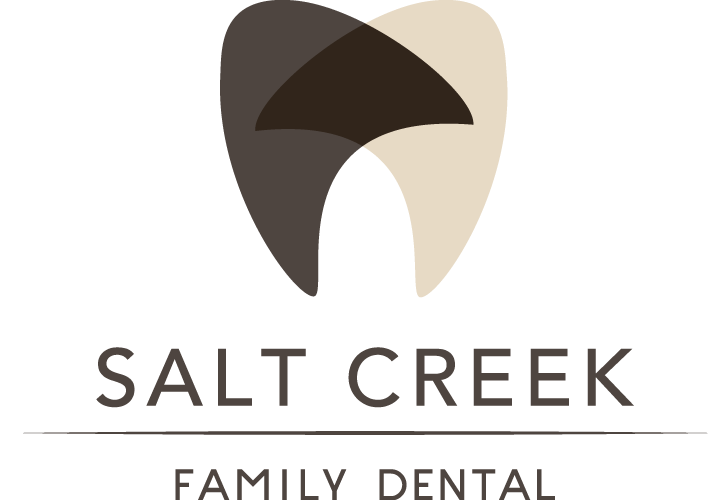Mental health effects on dental health
Did you know that May is Mental Health Awareness Month? Learn why your mental health can also affect your dental health.
The COVID-19 pandemic has brought to light the dilemma of the increasing mental health decline. Mental illnesses can include anxiety and panic attacks, depression, eating disorders, obsessive-compulsive disorder, and self-harm, among others.
Did you know that your mental health can drastically affect your dental hygiene habits?
This can range from paralyzing anxiety, poor diets, eating disorders like bulimia, overzealous brushing from obsessive compulsive disorder, neglect due to depression or self harm, or medications (both prescribed or self medications) causing dry mouth.
People with depression and anxiety tend to have poor dietary choices like eating/drinking sugary foods or beverages. Why? Because people who have depression and low levels of dopamine in the brain may use sugar as a tool to temporarily feel better. Sugar causes a temporary surge in dopamine levels - giving that feel good feeling. Too much sugar can lead to an increase in the tolerance of sugar and to cravings, perpetuating the problem!
On the contrary, some people with mental illness can have a decrease in appetite. Not getting the nutrients the body needs can drastically affect dental health, especially if poor diet happens when the teeth are developing and mineralizing (during childhood and adolescence). Calcium rich foods like yogurt and cheese and phosphorus rich foods like eggs, fish, and nuts help to keep your teeth strong. Vitamin C rich foods like citrus fruits, tomatoes and broccoli can help keep gums healthy.
Another mental health issue that crops up is dental anxiety. Dental anxiety can lead to people neglecting their oral health. Fear can paralyze a person from getting the help they need even when the person knows they have serious tooth or gum infection! There are several coping mechanisms that can help including guided meditation and imagery, breathing exercises, and hypnosis. If those options are not enough, your dentist can prescribe an anti-anxiety medication for you. If you go the medicated route, don’t forget to have a friend or family member accompany you to your appointment. Heck, bring them with you regardless, for moral support!
People with mental Illness sometimes have difficulty performing daily tasks due to anxiety making the small tasks feel overwhelming. If that’s the case for you, try breaking the task down into smaller steps and goals. Be compassionate with yourself, and be encouraging rather than judgmental. Identify your mental health condition and give it a name. Know that the problem isn’t you, but your condition. If you didn’t floss last night - that’s ok. There’s always tomorrow morning to pick that habit up. The greatest investment you could ever make is in your health. You got this!!!
Lastly, people with mental health illness can resort to self medicating using alcohol and tobacco as a crutch. Using alcohol along with tobacco is a double whammy for increasing your chances of developing oral cancer. You are 50 times more likely to develop oral cancer if your drink heavily and smoke daily than someone who does not. Smoking leads to stained teeth and bad breath. It also tends to cause excessive formation of plaque and tartar on your teeth, which in turn leads to bone loss and periodontal (gum) disease. Smoking can also cause your dental implants to fail and to delay healing following tooth extractions, injury, or dental surgery. Drinking alcohol can lead to an increase in cavities due to the high sugar content of many alcoholic beverages. It can also decrease your salivary flow leading to even more cavities!
There are many beneficial minerals and antibodies in your saliva that help to keep your oral cavity (your mouth!) clean and healthy. So maintaining a healthy salivary flow is crucial for cavity-fee success.
So now we know that poor mental health can lead to poor oral health. On the contrary, poor dental health itself can contribute to poor mental health by decreasing our self-esteem. Self esteem can suffer because of embarrassment due to missing teeth, bleeding gums, and bad breath. Don’t be a victim to poor oral health OR poor mental health!
Here are some helpful links in case you find yourself struggling with your mental health:
How to cope with stress:
https://www.cdc.gov/mentalhealth/stress-coping/cope-with-stress/index.html
Crisis help lines:
https://www.nimh.nih.gov/health/find-help
Help with eating disorders:
Help quitting tobacco:
https://amp.cancer.org/healthy/stay-away-from-tobacco/guide-quitting-smoking.html
Help with alcohol cessation:
https://www.health.harvard.edu/diseases-and-conditions/11-ways-to-curb-your-drinking
Our Dental team at Salt Creek Family Dental. We treat all our patients like they are our family. Contact us today at 630-323-0060 or email our office at office@saltcreekfamilydental.com and get on the road to better oral AND mental health!!
Dr. Celeste Medynskyj

